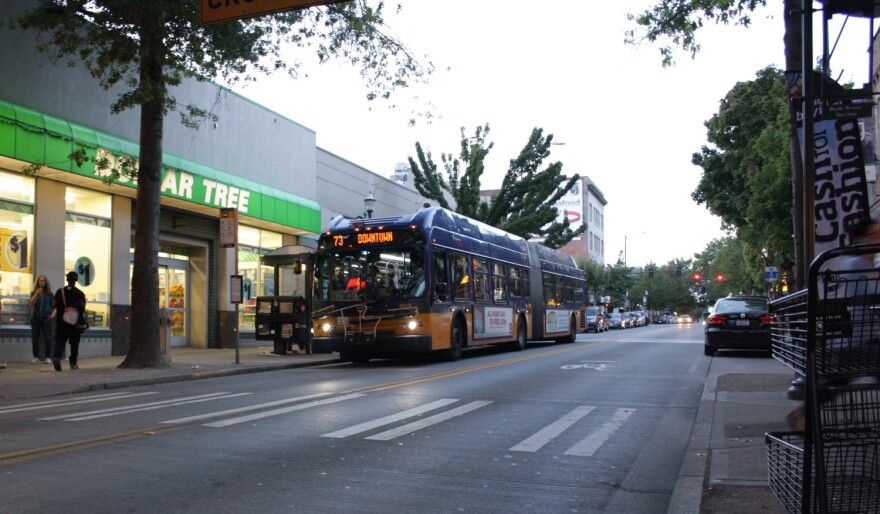It used to be if you wanted to take the bus across town in Seattle, you often had to ride all the way downtown first. But now light rail does some of that heavy lifting, getting people from north to south. And next spring two more light rail stations are opening at Capitol Hill and Husky Stadium.
Under its new plan for rebuilding the bus system in northeast Seattle, Metro isn't going to waste so much time now fighting traffic to get downtown.
Instead, it's going to use that money to strengthen its network.
Riders will have to walk farther to get to a stop under this plan, which goes to the King County Council for approval. But once they get there, buses will come more often.
“You know, anyone who’s lived in northeast Seattle for 40 or 50 years is going to have seen the transit network basically stay the same," said Metro engineer Ted Day. At the same time, he said, they'll recognize a lot of changes.
"I mean, I talked about U-Village – 50 years ago it was a strip mall. It’s huge now. It’s a major regional shopping destination. People in northeast Seattle want to get there.
[asset-images[{"caption": "Metro engineer Ted Day.", "fid": "120164", "style": "placed_left", "uri": "public://201508/ted_day.jpg", "attribution": "Credit KUOW Photo/Joshua McNichols"}]]"Well, the 50-year-old network doesn’t go there, really. It’s not oriented towards there, it’s oriented towards getting people to Frederick and Nelson’s downtown. Frederick and Nelson’s no longer exists.
“Children's Hospital, 50 years ago, was a pretty small hospital. It’s a huge regional center now. I mean, these are destinations that people in northeast Seattle and the Puget Sound region want to get to.”
Metro found that people are willing to walk farther to a bus stop if they know there’s reliable frequent service there. And so they’re rebuilding the network around that idea. There will be lots of buses along big arterials that will take you to the light rail station. And once you get there, there’ll be lots of trains to take you downtown. Or if you don’t want to go downtown, many of the other routes will be beefed up too.
[asset-images[{"caption": "Seattle Transit Blog's David Lawson.", "fid": "120163", "style": "placed_wide", "uri": "public://201508/david_lawson.jpg", "attribution": "Credit KUOW Photo/Joshua McNichols"}]]David Lawson writes for the Seattle Transit Blog. He got on Metro's 28 Express bus with me. Here’s what he told me.
Lawson: “The big takeaway here is if you live almost anywhere in northeast Seattle, your bus is going to run twice as often.”
The cost is that you’ll have to transfer. Whereas in the past, people may have been able to take just a single route somewhere.


